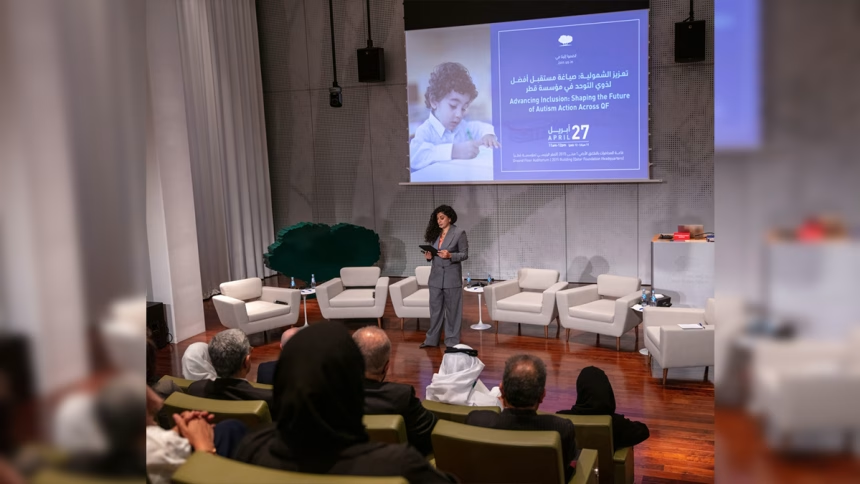Education City, Doha – April 30, 2025
Qatar Foundation has unveiled a comprehensive 10-year plan aimed at significantly enhancing support for individuals with autism across its ecosystem. The newly launched QF Autism Strategy 2025–2035 focuses on inclusive education, early diagnosis, AI-driven technologies, and personalized healthcare—marking a major step toward a more inclusive society in Qatar.
Developed by QF’s Autism Task Force—established in 2023—the strategy aligns with national efforts to improve autism services and reflects Qatar’s growing recognition of autism as a key public health and social inclusion priority.
Among the strategy’s targets:
- A 25% reduction in the average age of autism diagnosis
- A 50% increase in youth with autism accessing higher education, vocational training, or employment
- Half of all families reporting improved quality of life
- A 50% boost in QF-created technologies supporting autism care
Renad Academy, QF’s specialist school for children with autism, will expand to serve students aged 3 to 21. Early identification and intervention programs will be implemented across QF schools. In addition, a new autism community hub will offer culturally relevant support, digital tools for parents, and peer networks. A vocational hub is also planned to help young adults with autism transition into the workforce.
Artificial intelligence will play a central role, with QF leveraging its research and partnerships to build early detection tools and adaptive technologies. Genetic research at Sidra Medicine, QF’s medical and research center, will explore the biological roots of autism to support personalized treatment approaches.
“This strategy is a major step toward creating a society where every individual with autism can thrive,” said Dr. Dena Al Thani, Chair of the QF Autism Task Force and Associate Professor at Hamad Bin Khalifa University. “It brings together education, healthcare, technology, and compassion.”
Dr. Hilal Lashuel, Executive Director of QF’s Research, Development and Innovation division, emphasized that autism support must be lifelong and adaptive: “Every autism journey is unique. Our approach must be just as responsive—meeting individuals and families where they are, at every stage.”
Also Read: MOPH-Qatar Strengthens Strategies for Preventing NCDs
Qatar Foundation’s new roadmap builds on decades of work in inclusive education, advocacy, and research, underscoring its role as a national leader in disability inclusion. As Dr. Lashuel noted, “No individual with autism should be left behind—in education, in care, or in innovation.”












